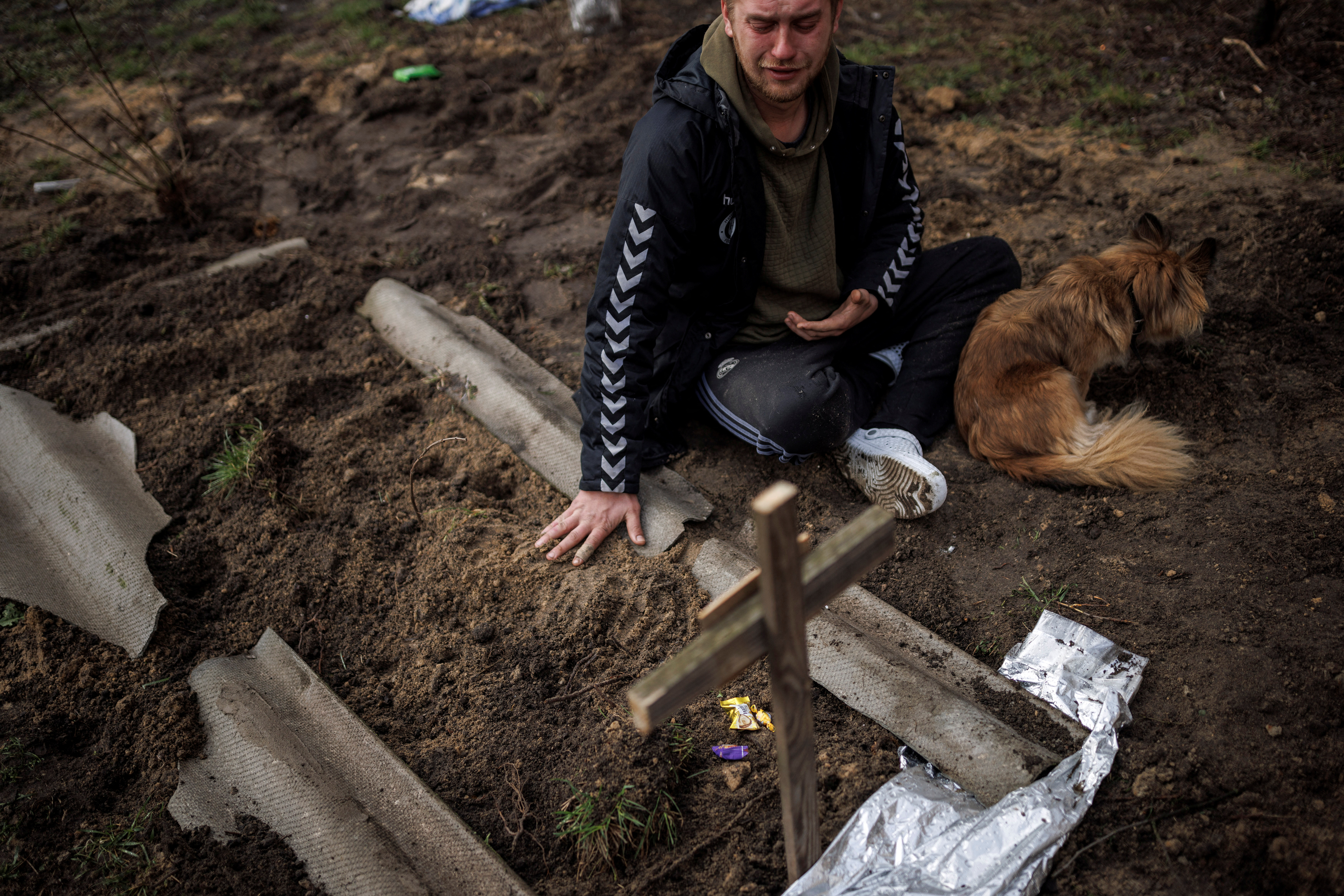
Germany says it has intercepted radio conversations in which Russian troops discussed the killing of civilians in the Ukrainian city of Bucha.
German magazine Der Spiegel, which first reported on the intercepted communication on Thursday, said the country’s foreign intelligence service, the BND, obtained conversations among Russian soldiers about the shooting of civilians.
In two separate communications, Russian troops talk about questioning Ukrainian soldiers and civilians and then shooting them, according to The Washington Post, citing an intelligence official familiar with the findings.
Some of the intercepted intelligence seems to match the locations of bodies found along the main road through Bucha, northwest of Kyiv.
In one intercepted message, a soldier is seemingly heard telling another that they had shot a person riding a bicycle.
Images of a dead body lying next to a bicycle recently surfaced following the withdrawal of Russian forces from the Bucha area.
In another intercepted conversation, a man is heard saying, “First you interrogate soldiers, then you shoot them.”
Russia has vehemently denied taking part in any atrocities in Bucha, claiming that the bodies seen lying on the ground were “staged”.
Der Spiegel claimed that “the intercepted comments now appear to completely refute Russia’s denials.”
Images of atrocities emerging from Bucha have galvanised calls for probes into possible war crimes.
The UN Security Council has condemned the killings in Bucha and Ukrainian President Volodymyr Zelenskyy told the Council this week that further atrocities were taking place in other towns being held by Russian soldiers.
The BND also apparently found evidence that members of the Wagner Group, a Russian mercenary unit with connections to Russian President Vladimir Putin and his associates, played a leading role in the atrocities in Ukraine. The Wagner Group allegedly committed atrocities during the war in Syria.
Germany said it also has satellite images that appear to show Russia’s involvement in the death of civilians in Bucha, according to the intelligence official who spoke to the Washington Post.
On April 6, German intelligence officials briefed members of at least two parliamentary committees on the findings, the Washington Post reported, citing people familiar with the situation.
The newspaper suggested that Russian troops’ reliance on unsecured communication devices, including smartphones and push-to-talk radios, has left them vulnerable to interceptions.
Last month, the federal prosecutor’s office in Germany opened a probe into alleged war crimes perpetrated by Russian troops.
Berlin is relying on the principle of universal jurisdiction, which gives national courts the authority to prosecute genocide, crimes against humanity and war crimes perpetrated by foreign nationals on foreign territory.
This principle was most recently used by Germany to put on trial a former intelligence official in Syrian President Bashir al-Assad’s regime. The official, Anwar Raslan, was sentenced to life in prison after he was convicted of crimes against humanity for his role in torturing Syrians.







